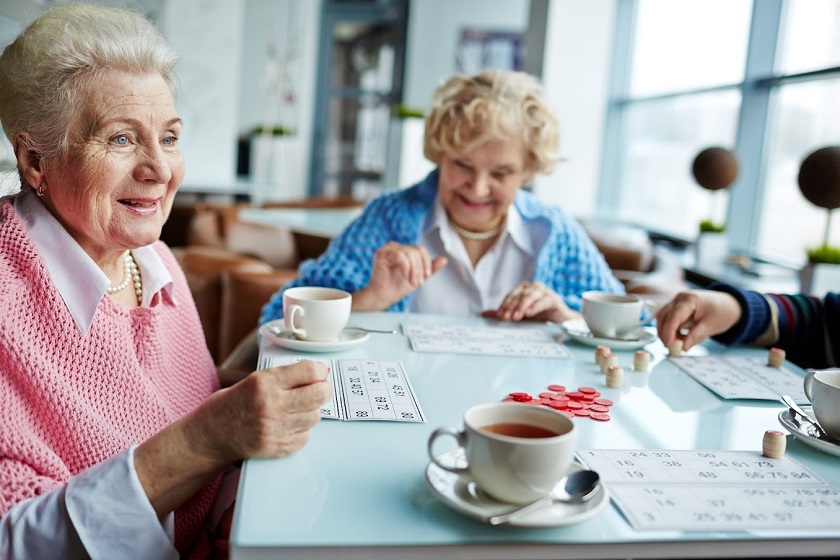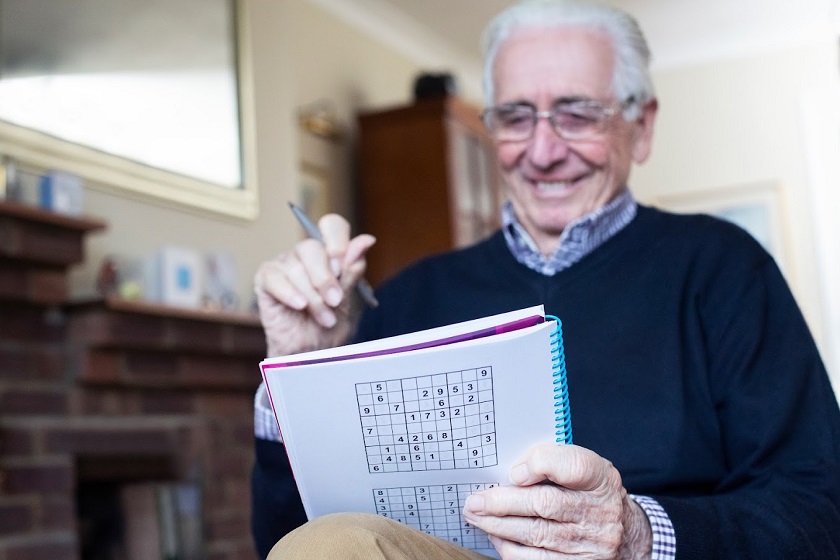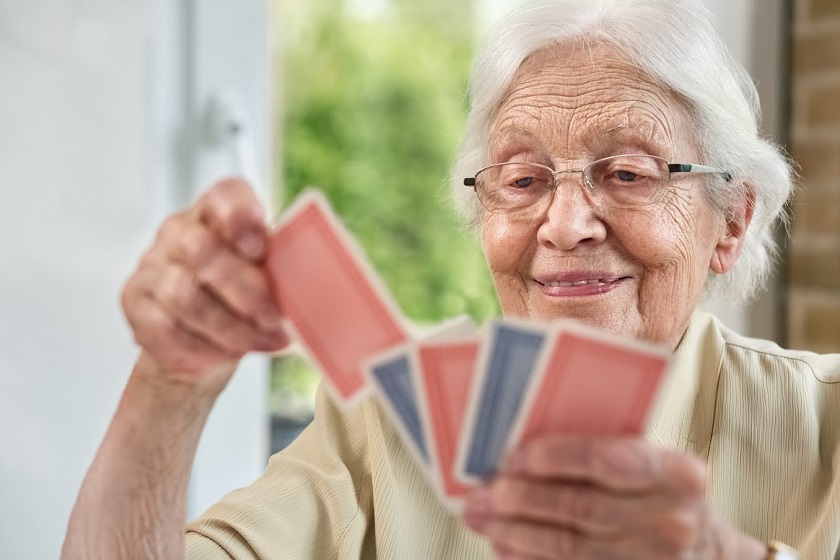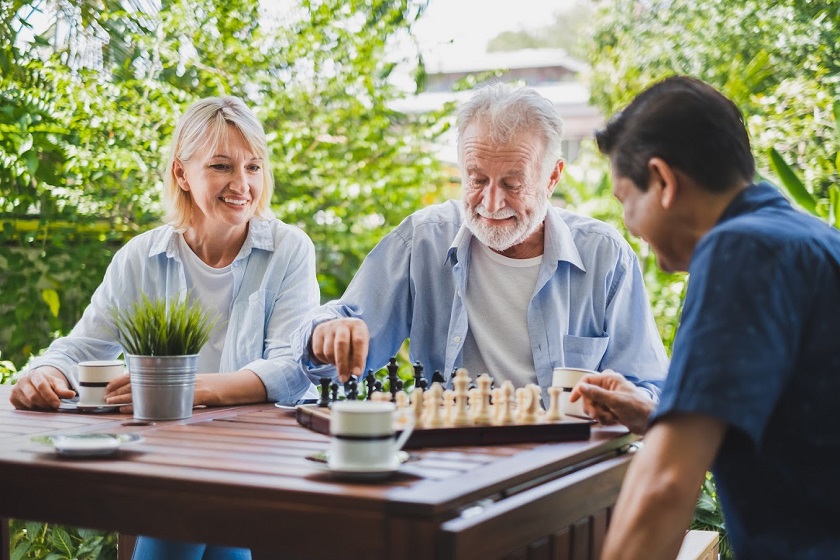
How to Keep Seniors Mentally Active with Fun Learning Games?
Keeping our brains sharp is as crucial as maintaining physical health and strength as we age. In our lives, our brains are in charge of keeping us happy.
The mind needs to get challenged every day so that the brain works as well as possible. As a good thing, exercising the mind can be enjoyable and easy thanks to short, fun learning games for seniors and mental activities they can do anywhere.
Contents
Best Fun Learning Games for Seniors and How They Keep Us Mentally Active
Here is a list of fun learning games for seniors that we’ve put together. All you have to do is check these out and see what you and your older loved one think.
Word Puzzles
Word games are fun to exercise your mind and get your brain working. It doesn’t matter if you can’t get all the answers right. Trying to figure out the answer, working with other people, and putting in the work makes a difference in your brain health. Here are some famous word puzzles among seniors:
- Word search
- Crosswords
- The Hangman
- Complete the sentence
- Scrabble
Bingo

Bingo is an easy and fun game that seniors can play in large or small groups. This game is one of the most popular activities among senior citizens who live in nursing homes or attend day centers, and it’s simple to play it at home or elsewhere. Besides being entertaining and exciting, there are several health benefits for seniors who play bingo.
It is an excellent game to activate three primary senses:
- Hearing (when the numbers get announced).
- Touch (using the pen to dab and hold the card).
- Vision.
Bingo is also a fantastic social activity that can combat loneliness and promote one’s sense of well-being.
Sudoku

Sudoku is a well-known pencil puzzle. It is a game that requires the use of problem-solving abilities in a pleasant, easy-to-learn manner. Sudoku is available on nearly every digital device as well as traditional newspaper. You can also play it online.
But what makes this game so beneficial to your mental health? Playing sudoku demands logic and memory, which pushes the brain to form connections. Strategic thinking also helps you increase your attention and make quick decisions. Moreover, solving the problem gives you a sense of pride and success.
Sudoku isn’t the only fun game that can help seniors improve their memory, but it definitely can help keep your memory fresh.
Trivia
Depending on the group or individual with whom you are playing, there are many trivia subjects that you can use for a trivia game. Exciting subjects include musicals, current events and history.
Keep score when playing in groups or teams to boost competition and offer more challenge. Depending on the skills and interests of people participating, you can yell out or write down the questions. Then you can go back and count how many of the answers were accurate. Those who win could even get gifts. Trivia is a fun learning game and a way to challenge older adults’ brains while also having a good chuckle.
Card Games

Scientists have proved that card games can help you use your brain to its fullest potential. Solo card games, such as solitaire, can be played on the computer or with people. Playing with a companion offers additional health benefits.
According to research published in Frontiers in Psychology, playing card games with people has a two-fold effect. First, playing card games is a powerful technique for cognitive training. Second, research has revealed that social interaction stimulates brain cells.
Video Games

Many people believe that video games are just for youngsters; however, they may also be an excellent activity for seniors. According to research, 3D platform games like Super Mario could be especially beneficial for older adults since they involve quick reflexes, planning, and remembering which keys to use.
Besides being fun and learning, computer games also encourage the user to master new abilities, which can help safeguard cognitive health in seniors and provide a sense of satisfaction.
Matching Card Game
Forgetting what’s in the fridge or why you walked upstairs are both frustrating moments of forgetfulness that we all experienced. However, these times can become regular and unpleasant for seniors, making day-to-day tasks difficult.
The card matching game is an excellent practice for improving memory abilities in people of all ages. You may play it by yourself or with a group of people you know. All you need is a deck of cards and a table. The cards are dealt face down, and when a player takes their turn, they flip over two cards simultaneously. If the cards match, they keep the pair and resume hunting for other matches. If they fail, the turn passes to the next player. The one who has the most correctly matched pairings is the winner.
Chess

This classic game has long been a favourite among people who want to challenge their minds. It requires strategy and patience, but it can aid older adults in improving their spatial abilities, problem-solving skills, focus, and even memory. The game requires thoughtful consideration of the consequences of each move, making it a perfect brain game for seniors and a fun way to pass the time for those who have lots of free time.
Conclusion
It is critical to keep the mind engaged as we age. Learning and fun brain games can considerably reduce and slow down the effects of aging, adding many extra healthy brain years to life. According to recent studies, you need five minutes each day to engage in brain-boosting puzzles or learning games to significantly improve your mental health. So start moving, exercise your brain, and have fun gaming!
Read more:
I am a 72-year-old grandfather who enjoys video games. They’re a lot of fun for me. If you’re having trouble entertaining yourself, simply buy a game console and join in the party.
I don’t think Bingo is a good brain booster. I mean, it doesn’t offer any challenge for the brain.
I usually solve puzzles, and I enjoy solving them. Sometimes when I do not know the answer, I ask my granddaughter to search for the answer on the internet. So it helps my granddaughter and me to work together to find answers. It also teaches me new words and definitions. My granddaughter and I spend two hours each day solving puzzles. I suggest my other friends do it with their loved ones.
My grandson and I solve puzzles together. He enjoys solving puzzles, and he knows everything. His name is synonymous with wit in our family. I learned a lot of words from him, and he taught me the best way to guess the answers. I think this is the most pleasing way for people my age to prevent dementia because you have to guess the correct answer while you are talking with your loved ones.